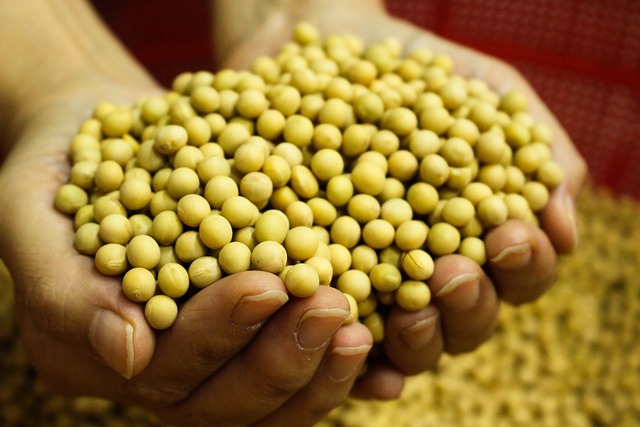Sustainable soy for the entire meat industry

From January 1, 2024, QS-certified companies are obliged to only sell feed that meets the QS-Sojaplus standard. QS thus enables the entire production chain for meat and meat products to rely on the use of more sustainably produced soy. In the future, QS system partners will only market meat and meat products that come from animals whose feed, if it contains soy, is compliant with the QS-Soyaplus module. The voluntary transition period ends on December 31.12.2023, XNUMX.
“With the new additional module QS-Sojaplus, we have succeeded in creating a cross-industry solution,” emphasizes Katrin Spemann, head of the feed and animal husbandry department at QS Quality and Security GmbH (QS). “Animal farmers who feed QS-certified feed can now be just as certain that they are receiving QS-Sojaplus-compliant feed. Food retailers can be sure that they only receive meat from appropriately fed animals.” This comprehensive industry solution also means that the meat industry does not have to laboriously separate its product flows.
The same requirements apply to animals and feed from abroad, because QS was also able to reach an agreement with the recognized international standard providers: If their requirements are comparable and therefore compliant with the QS-Soyplus module, the trade and production of feed with soy can also be carried out their standards must be certified.
When developing this new standard, it was important for the majority of the economy to take many sustainability aspects into account and to have them verifiably certified according to internationally recognized and established sustainability standards. These certification requirements apply to all countries of origin from which soybeans - processed or unprocessed - will enter the QS system in the future.
The certification of sustainable soybean cultivation refers to the established FEFAC Soy Sourcing Guideline. It contains 73 sustainability criteria that take into account social, economic and ecological aspects of soybean cultivation on site. This means that the QS-Sojaplus module differs significantly from the requirements of the EU regulation. This focuses on freedom from deforestation – a partial aspect of the sustainability criteria. Of course, the soy in the QS system will also meet the requirements of the EU directive from December 30.12.2024, XNUMX and will be demonstrably deforestation-free.
Currently, the required quantities of soybeans from sustainable cultivation in accordance with the QS-Sojaplus requirements are not yet physically available worldwide for use in animal feed. Therefore, feed companies in the QS system can also purchase and process soybeans from cultivation that has not yet been certified sustainably, but then have to compensate for this by purchasing credits (“book & claim”). “This interim solution, which is currently still necessary, is always done with the aim of further promoting more sustainable cultivation and avoiding deforestation and the conversion of areas worthy of protection such as grassland, wetlands, swamps, moors or even savannahs,” says Spemann, explaining the procedure in the QS system.
Companies that trade, handle or process soybeans/products must deposit relevant information on this in the QS database by December 31, 2023. Further information and all documents on the additional module QS-Soyaplus can be found at www.qs.de/sojaplus.
QS Qualitäts und Sicherheit GmbH Quality assurance - from the farmer to the shop counter
QS has been the economic institution for safety in the production of food and feed for over 20 years. The QS system seamlessly defines the requirements for food safety and quality assurance along the entire value chain for meat, fruit, vegetables and potatoes. All of the more than 180.000 partners in the QS scheme are regularly checked by independent auditors. Comprehensive monitoring programs and targeted laboratory analyzes support quality assurance. The products from the QS scheme can be recognized by the QS certification mark. It stands for safe food, the conscientious and monitored production of which all economic operators, consumers and society can rely on.
Further information at: www.qs.de
